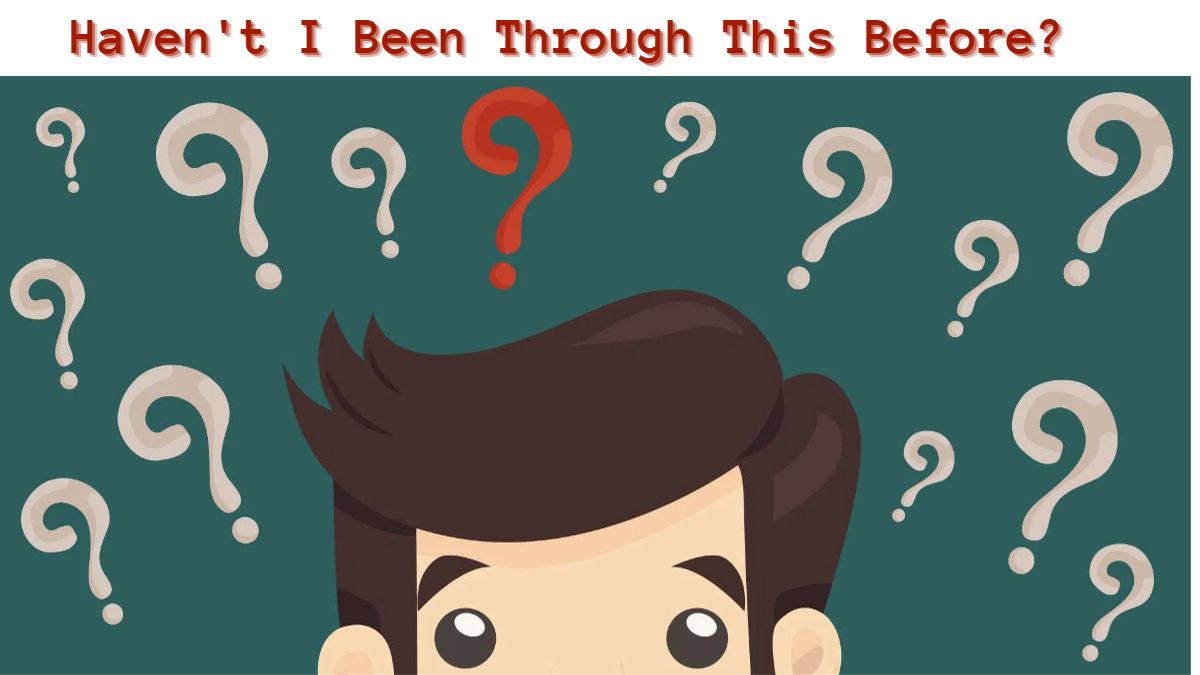Each of us has had a sense of having done something and had a vague sense of having done it before without any real memory of the moment. This terrifying phenomenon is known throughout the world as Déjà Vu. It is a very common phenomenon and people all over the world experience it every day. Some people even say they experience it at least once a week.
Déjà vu is a French term that means “Already seen.“Creepy, right?
What is Déjà Vu?
Déjà vu is a feeling of familiarity or recognition without memory of when and where. Sometimes it happens when we see something that reminds us of something else about past events. Let’s give a simple example to understand déjà vu.
Suppose you walk into a room to do something and suddenly you have the feeling that you have lived exactly this moment before. However, no matter how hard you try, you can’t seem to remember when exactly you experienced that moment.
No, it’s not a “glitch in the Matrix,” as the pop culture movie would have you believe.
It is a phenomenon that has underlying scientific reasons. Even if you subconsciously believe that this is a new experience for you, your brain tries to convince you otherwise. Different people have attributed different meanings to Déjà vu. However, déjà vu only means one thing: something is affecting your memory.
Read also | Why can’t we sneeze with our eyes open?
How does déjà vu occur?
Many people believe that they experience déjà vu because they have experienced the exact moment in their past lives, while many others believe that it is a paranormal experience or some kind of premonition.
Fortunately, that is not the case.
There is no single agreed upon reason behind déjà vu. Different studies have shown different things. But they all agree on one thing: déjà vu is a memory phenomenon.
Traditionally, our brain is divided into four lobes:
1. frontal
2. parietal
3. temporary
4. occipital
The medial temporal lobe of our brain is responsible for retaining visual memories, language comprehension, and emotional understanding. When the temporal lobe is affected by factors such as epileptic seizures, fatigue, stress, exhaustion, etc., it causes a discrepancy in our memories. The above-mentioned factors are the main reasons behind the onset of déjà vu.
So, from a medical point of view, you don’t experience déjà vu because you remember something from the past. Déjà vu occurs when you are recovering from stress, anxiety, exhaustion, or seizures.
Read also | What is the difference between a heart attack and cardiac arrest?
Almost 70-80% of the population experiences déjà vu, healthy and neurologically disturbed minds alike.
There are many theories about the occurrence of déjà vu, such as the neuronal recycling theory, cognitive dissonance, and precognition. Some people even believe that precognitive dreams and déjà vu are somehow interrelated with each other.
However, these are just theories and have no scientific basis.
Researchers have studied déjà vu for a long time. Studies show that this strange phenomenon has links to the neurological system. An abnormal neurological condition known as epileptic shock is what gives people the impression that the event or experience they are having now occurred in the past.
Read also | What is the difference between reflex action and walking?
However, people with healthy brains also experience déjà vu. According to some studies, déjà vu is caused by a disparity in memory that causes incorrect formation of a detailed memory from a novel sensory experience.
Other studies show that students, people who travel frequently, or anyone who is exhausted or under pressure are more likely to experience this feeling. This is because fatigue and stress can influence our memories, which is inadvertently linked to déjà vu.
Having déjà vu is quite common. Even the healthiest minds experience them. However, if you experience déjà vu frequently, such as more than a few times a month, visit a neurologist. This may be a symptom of neurotic epilepsy.
You may also be interested | What is the science behind hiccups? How to stop them?
Categories: Optical Illusion
Source: ptivs2.edu.vn
